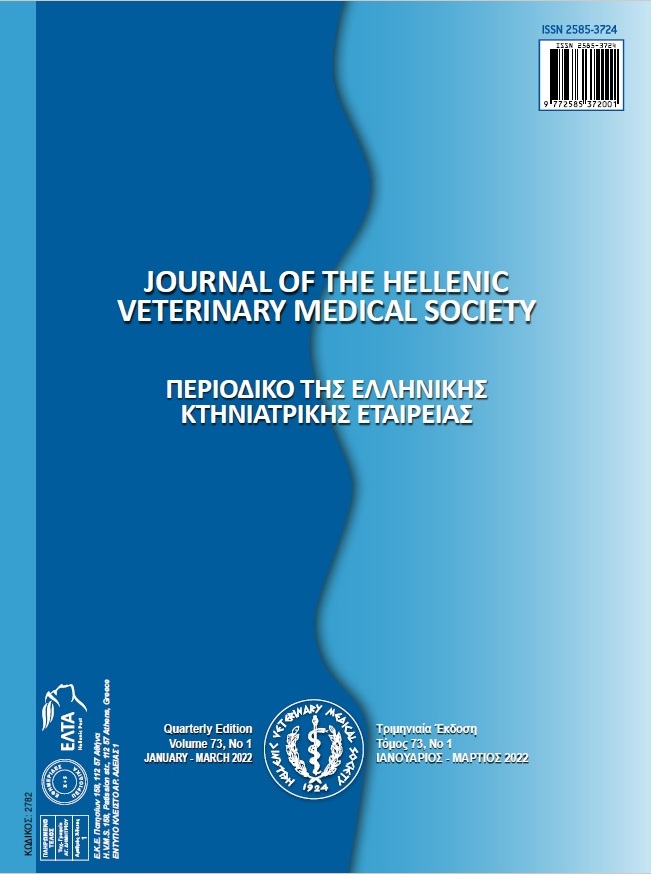Ketamine or propofol anesthesia in dogs: how do they affect cytokines, antioxidants and neutrophil functions?
Abstract
The objective of the study is to investigate the effects of ketamine and propofol on cytokines, antioxidant defense system, and neutrophil functions in dogs. A total of 24 dogs were used. Dogs were divided into two groups as ketamine and propofol. The ketamine group received ketamine (5 mg/kg) intravenously while the propofol group received propofol (4 mg/kg) intravenously. Blood samples were collected before sedation and 30 minutes after induction. Serum antioxidant and cytokine levels were analyzed and neutrophil functions were determined. Respiration rate, serum malondialdehyde, IL-4, IL-6 levels, and phagocytic and chemotaxic activity of neutrophils were decreased (P=0.001, P=0.010, P=0.014, P=0.039, P=0.008, and P=0.037, respectively), oxygen saturation were increased (P=0.025) in the ketamine group. Serum IL-6 and IFN-γ level were decreased (P=0.015 and P=0.032 respectively), chemotactic activity of neutrophils were increased (P=0.049) in propofol group. The administration of ketamine was found to have a positive effect both on the antioxidant system and the neutrophil. On the other hand, positive and negative effects of propofol on different parts of the immune system were observed. Therefore, the results should should be taken into account when designing an anesthesia protocol for dogs to predict possible defense system reactions during the postoperative period.
Article Details
- Come citare
-
GUZEL, O., Sevim, G., Aydin Kaya, D., Sezer, D., Erek, M., Esen Gursel, F., Atmaca, G., Demirtas, B., & Matur, E. (2022). Ketamine or propofol anesthesia in dogs: how do they affect cytokines, antioxidants and neutrophil functions?. Journal of the Hellenic Veterinary Medical Society, 73(1), 3783–3792. https://doi.org/10.12681/jhvms.25780
- Fascicolo
- V. 73 N. 1 (2022)
- Sezione
- Research Articles

Questo lavoro è fornito con la licenza Creative Commons Attribuzione - Non commerciale 4.0 Internazionale.
Authors who publish with this journal agree to the following terms:
· Authors retain copyright and grant the journal right of first publication with the work simultaneously licensed under a Creative Commons Attribution Non-Commercial License that allows others to share the work with an acknowledgement of the work's authorship and initial publication in this journal.
· Authors are able to enter into separate, additional contractual arrangements for the non-exclusive distribution of the journal's published version of the work (e.g. post it to an institutional repository or publish it in a book), with an acknowledgement of its initial publication in this journal.
· Authors are permitted and encouraged to post their work online (preferably in institutional repositories or on their website) prior to and during the submission process, as it can lead to productive exchanges, as well as earlier and greater citation of published work.



